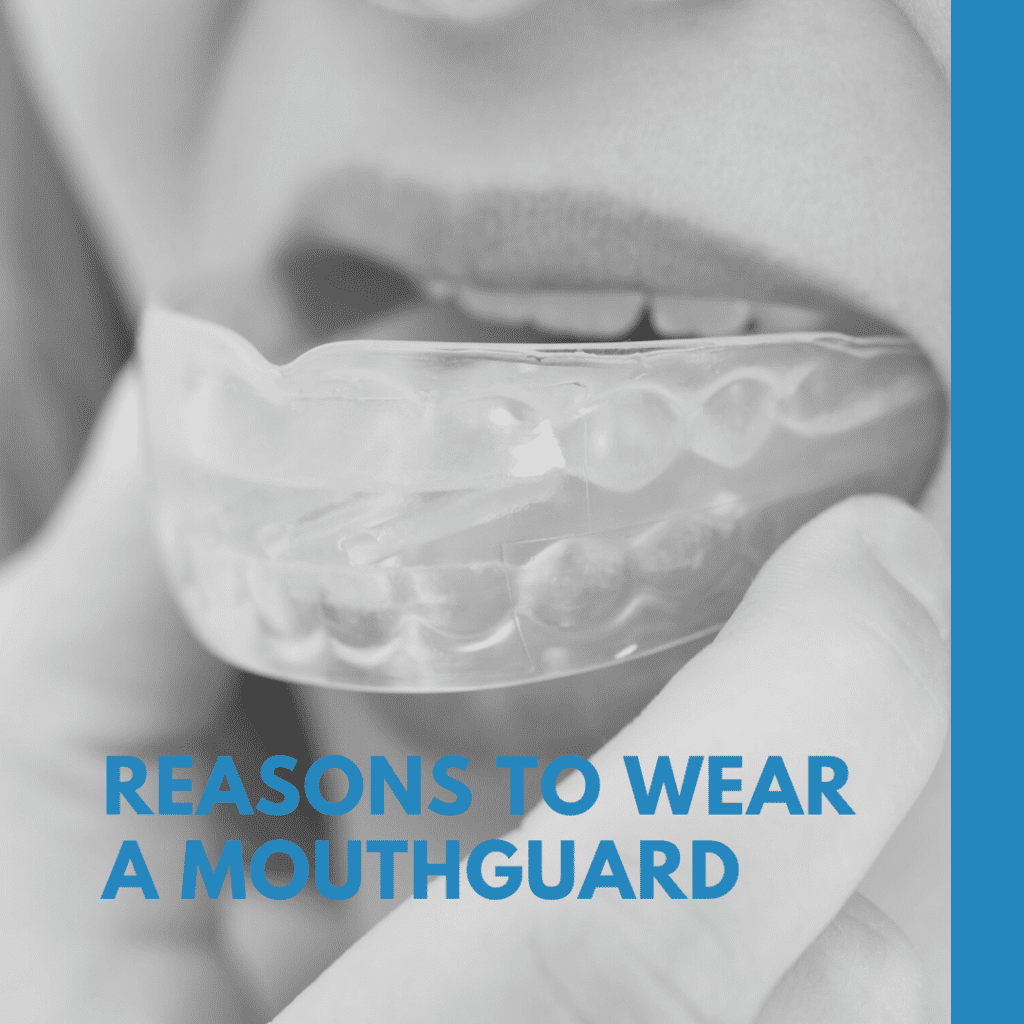Once all your permanent teeth have erupted, they are the only teeth you will have for the rest of your life. Unfortunately this means that if they become damaged, decayed, or lost, then you will need to find a way to repair or replace them. Oral hygiene like brushing and flossing are important to prevent decay, but how do you prevent damage?
One effective way to protect your teeth is to wear a mouthguard. While you don’t necessarily need to wear a mouthguard 24/7, there are definitely certain times when wearing a mouthguard is highly recommended. Here are two different types of mouthguards and when they should be worn:
Sports Mouthguard
A mouthguard is a device that fits over the teeth, and sometimes gums, in order to protect the mouth while playing sports. Some sports mouthguards may fit only over the top or bottom arch, while others may be made to fit over both.
Many sports-related injuries can be prevented or reduced by wearing a mouthguard. Even when you are not doing high impact activities such as football, rugby, boxing etc., it is still important to wear a mouthguard if you play any kind of sport with balls (soccer, hockey), run around on fields and tracks, or perform any kind of activity that could potentially damage your teeth.
Nightguards
If you suffer from bruxism, defined as teeth grinding or clenching, then a nightguard is essential for protecting your teeth. Bruxism can lead to chips or cracks in your enamel, as well as premature enamel wear. Nightguards are designed to be worn while you sleep in order to prevent the upper and lower teeth from grinding against each other.
Here are four reasons why you should wear either one:
Prevention
Sports mouthguards and nightguards help prevent tooth loss, fractures, and damage to the teeth. Any sport can be potentially harmful to your oral health, but certain types of sports can significantly increase the risk of tooth loss, fractures, and damage to the teeth. Sports mouthguards are designed to absorb blows to the face and act as a shield for your teeth and gums.

Nightguards also help to prevent your tooth enamel from chipping, cracking, or becoming prematurely worn down. Just like a sports mouthguard, nightguards act as a shield for your teeth to prevent them from rubbing against one another. Nightguards can also reduce or minimize TMJ pain (which is often caused by bruxism).
Comfort
Sports mouthguards can also be used to maintain comfort. This is especially the case for people who have braces. Certain types of sports mouthguards are made to fit over braces to protect both the braces, as well as the inside of the lips. Not only does this protect the teeth in the event of an accident, but it also prevents soft tissue injury and injury to other players.
Nightguards can also be used to maintain comfort. People who regularly grind their teeth at night often suffer from jaw pain, morning headaches, and even ear pain. Wearing a nightguard decreases bruxism, which also helps to alleviate symptoms of grinding such as headaches or jaw soreness.
Protection
In addition to preventing your teeth from becoming damaged, sports mouthguards and nightguards can also protect your teeth from decay. Damaged teeth are more likely to become decayed since their structure is weakened as a result of the damage. This can allow bacteria to enter the tooth and cause an infection. By preventing damage, sports mouthguards and nightguards decrease the risk of decay-causing bacteria entering the tooth.
There are many reasons why you should wear a mouthguard or night guard. Whether it’s for prevention of TMJ pain, comfort and protection from sports injuries, or just to maintain your oral health – there is no excuse not to protect your smile with one! If you need help finding the best type of mouthguard for yourself, please let us know. Our team can provide more information on how these devices work as well as what types may be best suited to your needs.


